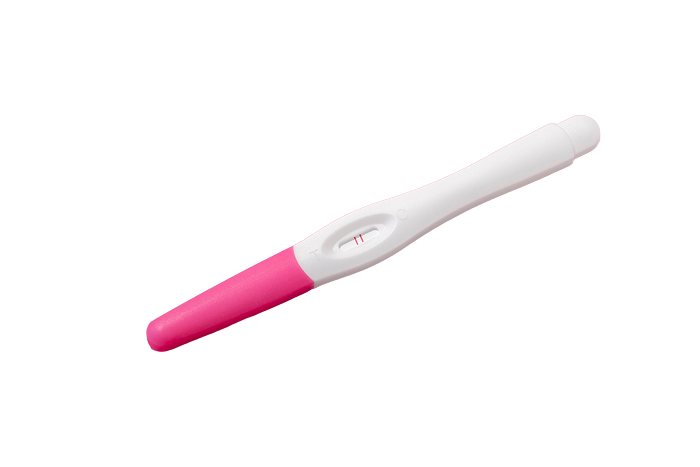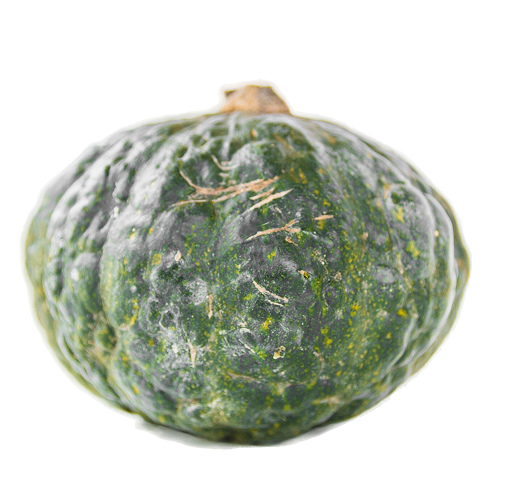23 Weeks Pregnant
Your baby is the size of an

Your excitement and anticipation are building week by week as you make your way through the second half of your pregnancy. Continue with your prenatal care appointments and seek your healthcare provider's advice when needed. At 23 weeks pregnant, your baby is growing steadily and developing in lots of ways. Keep reading for more information on common fetal developments at this stage, along with tips on symptoms and general advice for 23 weeks pregnant.
Highlights at 23 Weeks Pregnant
Here are a few key things to know and do when you're 23 weeks pregnant:
Pregnancy Weight Gain Calculator
Fill out your details:
23 Weeks Pregnant: Your Baby's Development
Check out these exciting fetal developments and find out what happens at 23 weeks pregnant:
Experts recommend drinking plenty of water during pregnancy, not only to benefit your overall health but also because the water you drink helps form the amniotic fluid.
If you’re 23 weeks pregnant with twins, take a look at our twin pregnancy week-by-week guide to find out more about what your babies are up to!
How Many Months Is 23 Weeks Pregnant?
You may hear your pregnancy being referred to in weeks and wonder how 23 weeks pregnant translates into months. There are various methods of grouping the 40 weeks of pregnancy into months, and at 23 weeks, you’re likely in your sixth month. So, what trimester is 23 weeks? You’re still in your second trimester and will be for the next few weeks.
Baby’s Size at 23 Weeks Pregnant
How big is a baby at 23 weeks pregnant? At 23 weeks pregnant, your fetus is about the size of an eggplant.
Your Baby: What Does 23 Weeks Pregnant Look Like?
Check out the illustration below for an idea of what a baby looks like and how they’re developing inside the uterus at 23 weeks:
Your Body at 23 Weeks Pregnant
By the time you’re 23 weeks pregnant, you may have gained about 10 to 15 pounds of baby weight. At 23 weeks and at any time during your pregnancy, you can always check in with your healthcare provider to make sure that your pregnancy weight gain is healthy and appropriate for your situation.
You can also read up on pregnancy weight gain facts and advice.
If your provider determines that you're gaining too much weight or not enough weight, they can offer advice to help you stay on track. For example, if you’re gaining too much pregnancy weight at 23 weeks, your provider may recommend adjusting your diet and exercising more.
Gaining a healthy amount of weight during pregnancy will make it easier to slowly lose those extra pounds after you’ve given birth.
At 23 weeks pregnant, you can probably feel your baby’s movement, although some parents-to-be may need to wait a little while longer.
At some point in the next few months, your healthcare provider may ask you to monitor your baby’s movements by doing a set of “kick counts” each day. To do this, you would choose a time of day when your baby is usually active and keep track of how long it takes to count 10 movements that your baby makes.
Give your provider a call if more than 2 hours pass before feeling these 10 movements; you notice decreased fetal movement at 23 weeks; or you detect any overall changes in your baby’s movement. You may find this downloadable fetal movement tracker helps you do the tracking.
23 Weeks Pregnant: Your Symptoms
At 23 weeks pregnant, here are some of the symptoms you may be experiencing:
How Big Is a Pregnant Belly at 23 Weeks?
Now that you’re 23 weeks pregnant, the size of your belly bump may be more and more obvious. After 20 weeks, your healthcare provider will start measuring your fundal height (distance from your pubic bone to the top of your uterus). Now and in the following weeks, your fundal height in centimeters will be roughly the same as the number of weeks you’re pregnant—around 23 centimeters at 23 weeks, for example—give or take 2 centimeters.
What Does 23 Weeks Pregnant Look Like?
For a general idea of the size of your uterus and belly in your sixth month of pregnancy, when you're around 23 weeks pregnant, check out the image below.
23 Weeks Pregnant: Things to Consider
You have a lot going on and a lot to think about at 23 weeks pregnant, from eating well and staying healthy to sorting through baby names. To keep on track, check out our list below:
23 Weeks Pregnant: Questions for Your Healthcare Provider
No matter what week you’re at in your pregnancy, you may have questions and concerns to raise with your healthcare provider. Here are some common questions to ask at 23 weeks pregnant:
FAQS AT A GLANCE
Although the 40 weeks of pregnancy can be grouped into months in various ways, at 23 weeks you’re usually considered 6 months pregnant.
23 Weeks Pregnant: Your Checklist
Here are some helpful to-dos for 23 weeks pregnant:
□ Wondering how to get health insurance for you and your baby? Go to HealthCare.gov to find out about coverage through Medicaid, CHIP, and other programs in your state.
□ You’ll love looking back on this time, so create lasting memories by organizing a maternity photo shoot while you still have the energy. You could hire a professional photographer or ask a friend who you know takes lovely pictures. You could do the photo shoot in a beautiful outdoor spot, or in the nursery, if it’s ready. Plus, you could have individual shots and some shots with your partner or loved ones. For some extra inspiration, take our quiz to discover your maternity photoshoot style.
□ If you have time this week, read this article on pregnancy warning signs not to ignore. It's always wise to prepare and know what to look out for.
□ Wondering how prepared you are for your baby’s arrival? Take this baby arrival quiz to find out! No matter the result—don’t worry—you still have plenty of time to get everything prepared.
How We Wrote This Article The information in this article is based on the expert advice found in trusted medical and government sources, such as the American Academy of Pediatrics and the American College of Obstetricians and Gynecologists. You can find a full list of sources used for this article below. The content on this page should not replace professional medical advice. Always consult medical professionals for full diagnosis and treatment.
- American College of Obstetricians and Gynecologists. Your Pregnancy and Childbirth: Month to Month, 6th ed. (Washington, DC: American College of Obstetricians and Gynecologists, 2015).
- American College of Obstetricians and Gynecologists. Your Pregnancy and Childbirth: Month to Month, 7th ed. (Washington, DC: American College of Obstetricians and Gynecologists, 2021).
- Mayo Clinic. Guide to a Healthy Pregnancy, 2nd ed. (Rochester, MN: Mayo Clinic Press, 2018).
- Cleveland Clinic. “ Fetal Development Stages of Growth.”
- Cleveland Clinic. “Fundal Height.”










